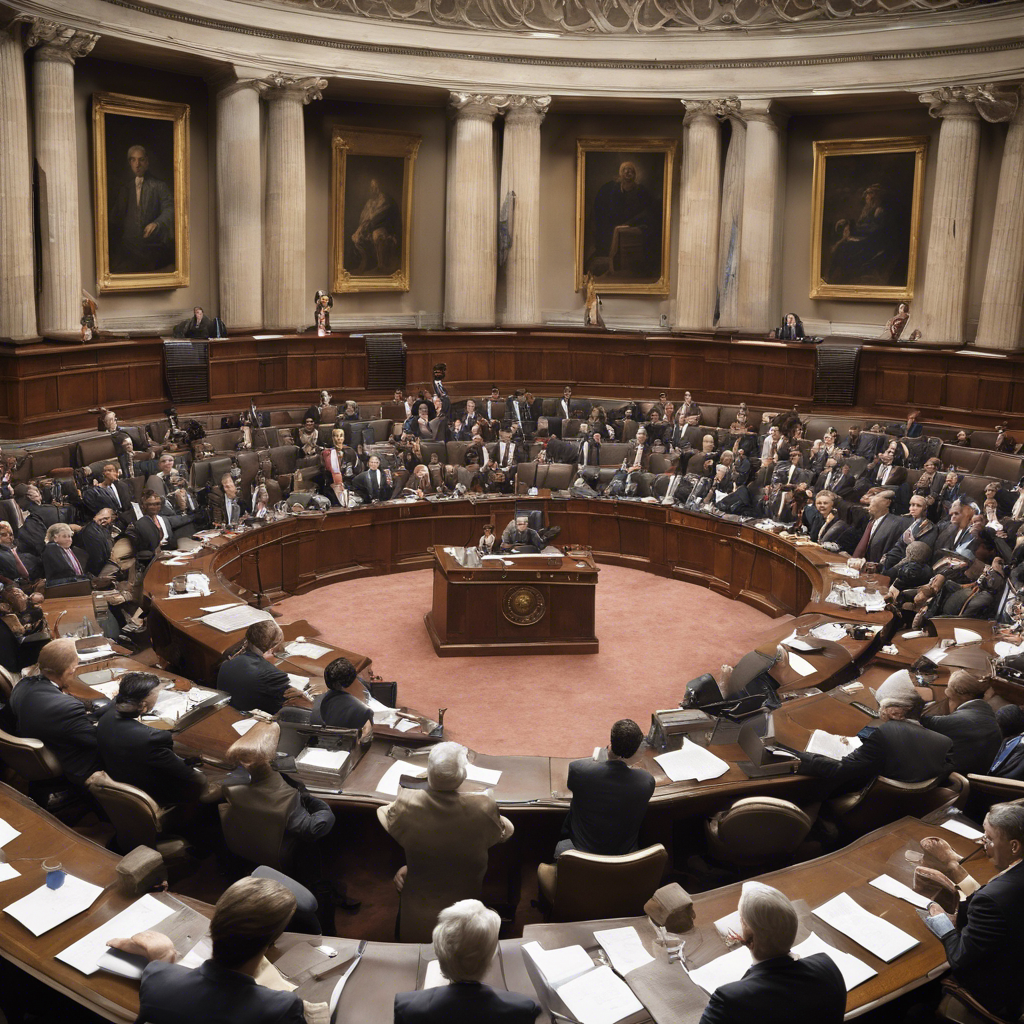The World Watches as American Politics Threaten Democracy

Foreign Diplomats Express Concerns Over the Polarization and Dysfunction in the United States
As the Iowa caucuses kick off the U.S. presidential election, the eyes of the world are on America. However, a series of conversations with current and former diplomats reveals that many foreign observers see the United States as already failing the test of democracy. These diplomats, who usually refrain from commenting on another country’s internal politics, are increasingly alarmed by the deep polarization and dysfunction that have permeated American governance. Their concerns stem not only from a sense of altruism but also from the realization that America’s state of affairs affects the global community. This article explores the diplomats’ perspectives and sheds light on the potential consequences of America’s political divisions.
The Erosion of Democracy:
Foreign diplomats, granted anonymity to speak candidly, express astonishment at how partisan politics in the United States have hindered the basic functions of government. One former Arab ambassador goes as far as to say that American politics have become so unhealthy that he would refuse an opportunity to return. Another Arab diplomat questions whether the United States can still be seen as a model for democracy in the future. These conversations, which would have been rare a few months ago, reveal a growing concern among foreign diplomats about the state of American democracy.
The Role of Partisanship:
While diplomats hesitate to name one party as the primary culprit, many examples they point to involve Republican members of Congress. The diplomats express frustration at the Republicans’ handling of issues such as military aid to Ukraine, which has become entangled with domestic concerns like border security and immigration. The diplomats argue that such partisan politics hinder effective decision-making and compromise, creating problems not only for the United States but also for the world at large.
The Impact on Global Security:
The diplomats highlight the repercussions of America’s political divisions on global security. They express alarm at the delay in U.S. military officer promotions due to polarizing abortion politics. Furthermore, questions about America’s commitment to NATO and the lengthy delays in confirming U.S. ambassadors and officials raise concerns about the United States’ reliability as a partner. The diplomats stress that prolonged and unnecessary debates on global security issues damage the perception of the U.S. as a trustworthy ally.
The Diminishing Trust in the United States:
The diplomats note that their countries are becoming more reluctant to sign deals with the United States due to the partisan divide. They worry that a new administration may abandon past agreements to appease electoral bases rather than for legitimate national security reasons. The fate of the Iran nuclear deal is cited as an example. The erosion of trust in the United States as a long-term partner has significant implications for global diplomacy and cooperation.
The Need for Unity and Long-Term Foreign Policy:
While the diplomats acknowledge the challenges of overcoming deep-rooted political polarization, they urge American politicians to find a way to unite on issues that have implications beyond U.S. borders. They stress the importance of consensus-building and the development of a long-term foreign policy that can withstand the fluctuations of domestic politics. Without such unity, the diplomats fear that alternative forces will rise to fill the void left by a diminished U.S. role on the global stage.
Conclusion:
The concerns expressed by foreign diplomats paint a troubling picture of American politics and its impact on democracy and global stability. The deep polarization and dysfunction in the United States have led many diplomats to question whether America can still be seen as a model for democracy. The erosion of trust in the United States as a reliable partner has far-reaching consequences for international relations. As the world watches, it is clear that America’s political divisions have implications that extend far beyond its borders. The question now is whether American politicians can find a way to overcome their differences and work towards a more united and effective governance that can restore faith in American democracy.

